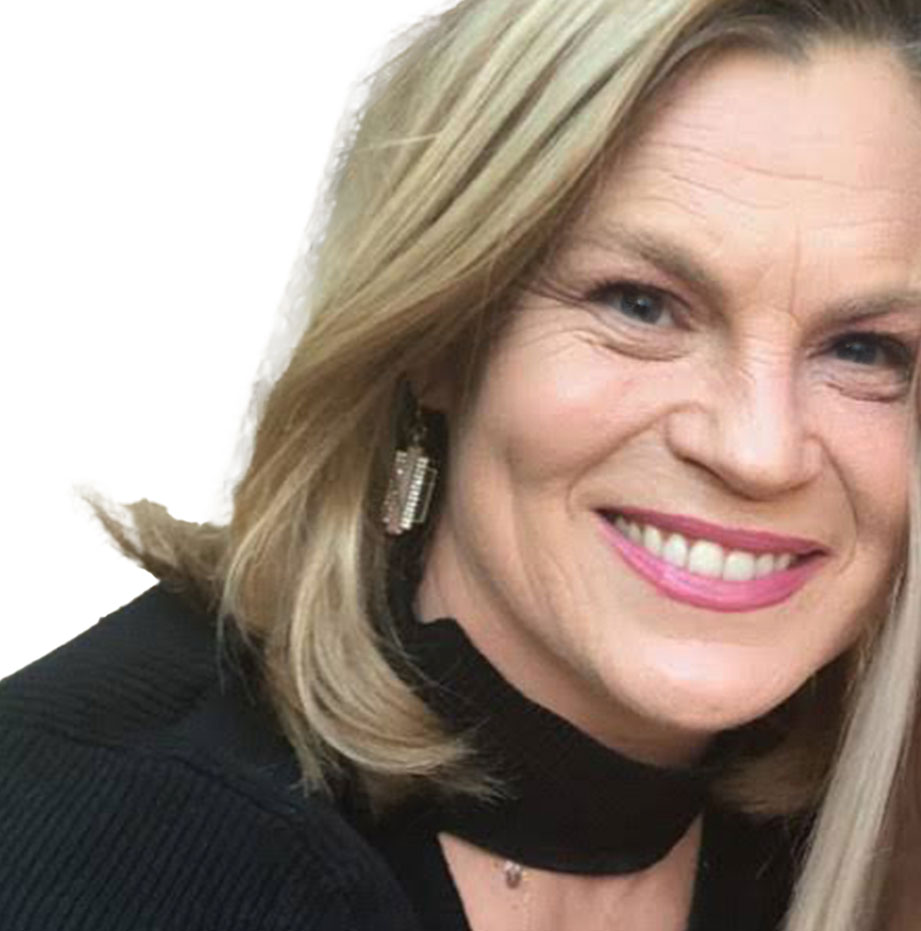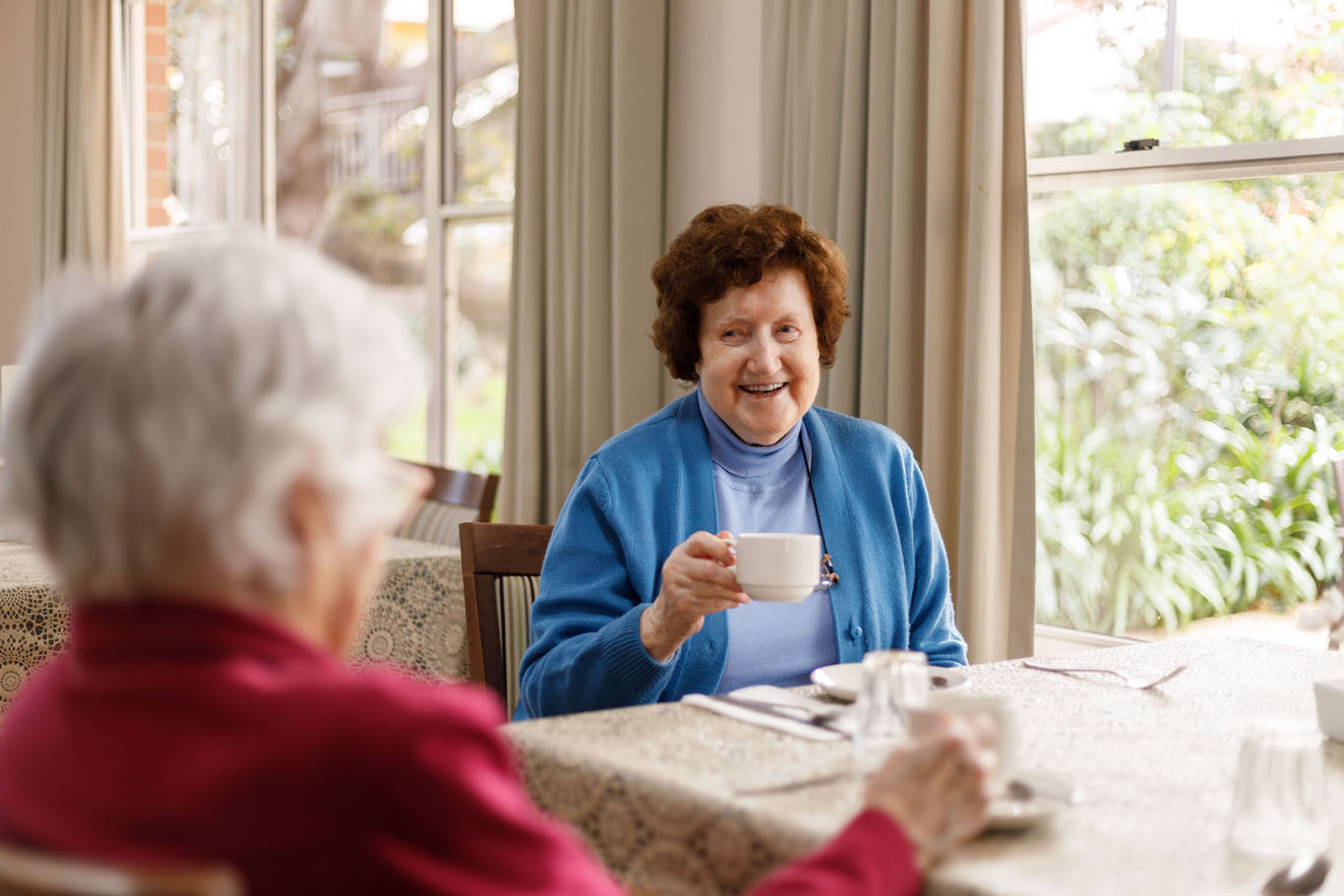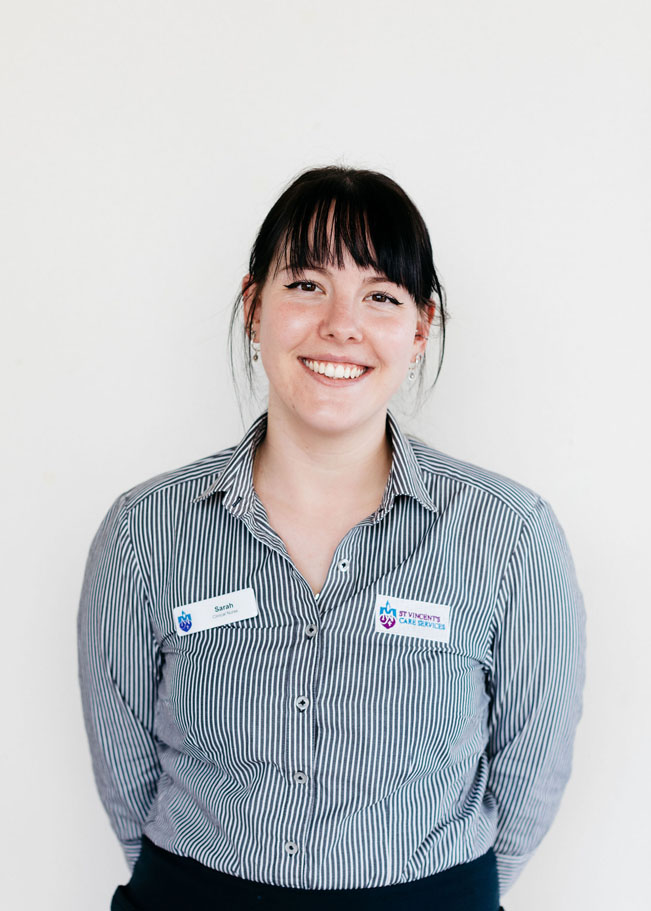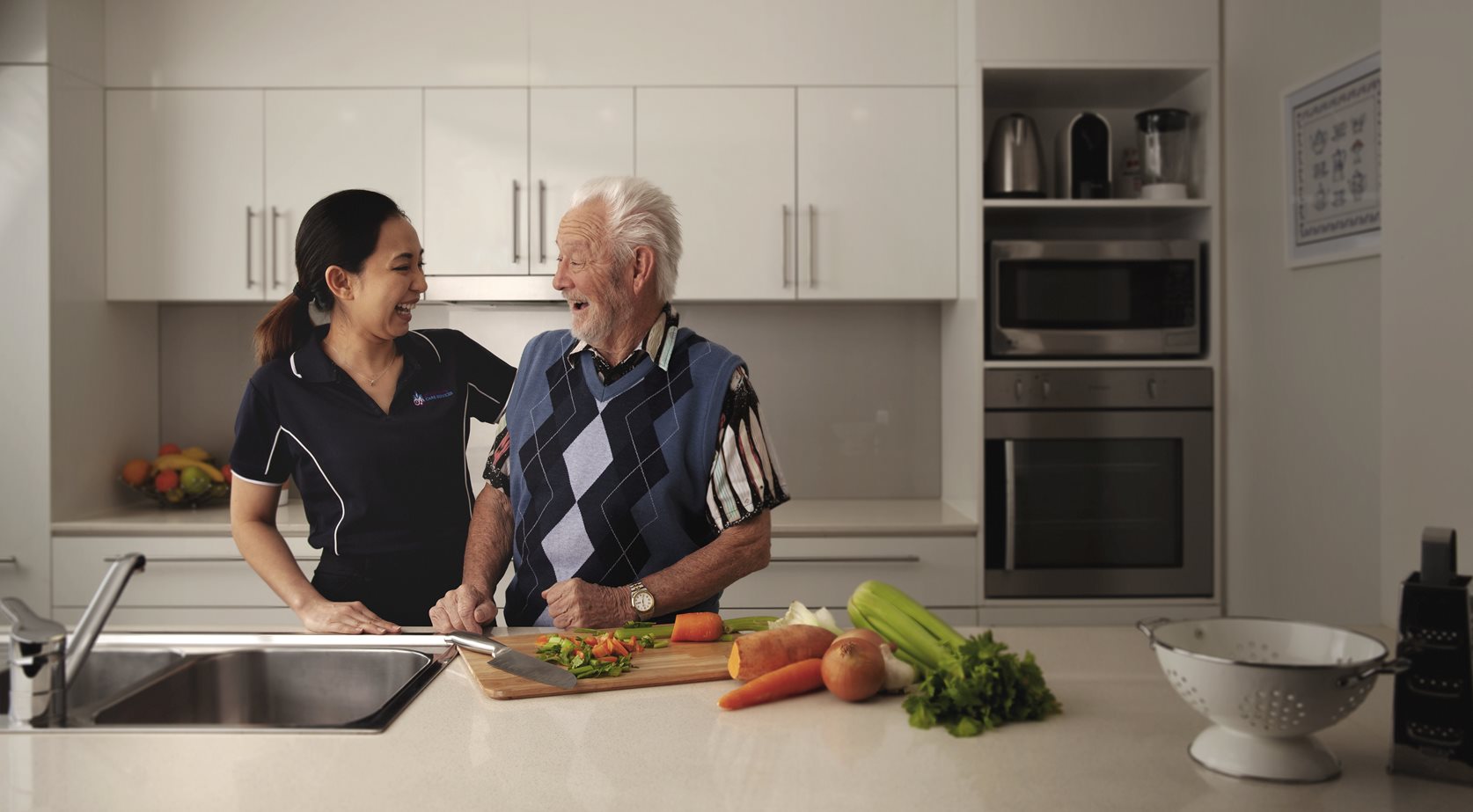But the reality is, care plans are changing all the time -- even if you don’t know about it straight away!
Whenever there’s a visit to the GP and medication gets changed - that's a care plan update.
If a resident has said they want their cup of tea a little cooler in the morning - that's a care plan update too!
Whether at St Vincent's or with another aged care provider, care plans should be changing regularly.
Why a care plan change might happen
The broad reasons a change to a care plan might occur include:
- The resident’s condition changes (for example, physical or mental health)
- Situations change (for example, if the organisation’s arrangements for a service changes)
- Incidents or accidents happen (for example, if a resident has fallen).
The care and services we provide to residents is something that is constantly evolving in consultation with residents and families. We strongly encourage residents and family to request a review of their care plan to make sure it’s still working at its best for them. They’re able to request a review at any time.
Any changes to your care plan will only be done so with your agreement. We will always discuss any changes with you to ensure you understand and agree to them. You will receive a copy of your updated care plan for your records.
How do I know if a change happens to the care plan?
Whenever something changes with any of these groups, it gets logged by staff on the resident’s care plan. If there are major changes, residents and their family meet with the
Whenever something changes with any of these groups, it gets logged by staff on the resident’s care plan. If there are major changes, residents and their family meet with the
If you prefer, you can also choose an advocate to represent you in your dealings with St Vincent’s.
An advocate can help you to understand your rights with any form of aged care, and be an impartial guide for getting the most out of your services.
If you need help or are feeling unsure about your rights, they can be an invaluable help, and can be found through the
Older Persons Advocacy Network (OPAN).
St Vincent's approach to care plan reviews
At St Vincent’s, there are other checks we put in place to make residents’ care is closely monitored.
If a resident has lost weight, then the care plan is checked to make sure that the new diet they are on is helping. If a resident has been seen by the doctor and has started on new medication, we make sure that staff follow up to see how it is going or if there are any side effects that need monitoring.
So, the check-in is an extra way of following up care changes that have happened throughout the month.
2. The check-in ensures residents have everything they need to be comfortable.
This could mean someone pops in to make sure you have all the clothes you need to be nice and warm or perhaps we might give you a manicure if your nails need a trim. Whatever you need, we look into and double-check.
3. The check-in is a great opportunity to contact residents or family.
Are you still happy with what we're doing? Are you happy with the care plan and the service and care that we're providing?
The check-in call is important because without it, it's easy to feel like we haven’t done a check-in at all.
And also: If you haven’t heard from us when you normally do, call us! We don’t want you to ever feel like you can’t get an update – especially if you’re feeling concerned about your loved one’s care.
Parting thoughts
Care plans are a crucial part of a resident's care in aged care. But by properly understanding how they work, you set yourself up to be educated, properly informed, and best of all, more relaxed about care!



.jpg.aspx)




